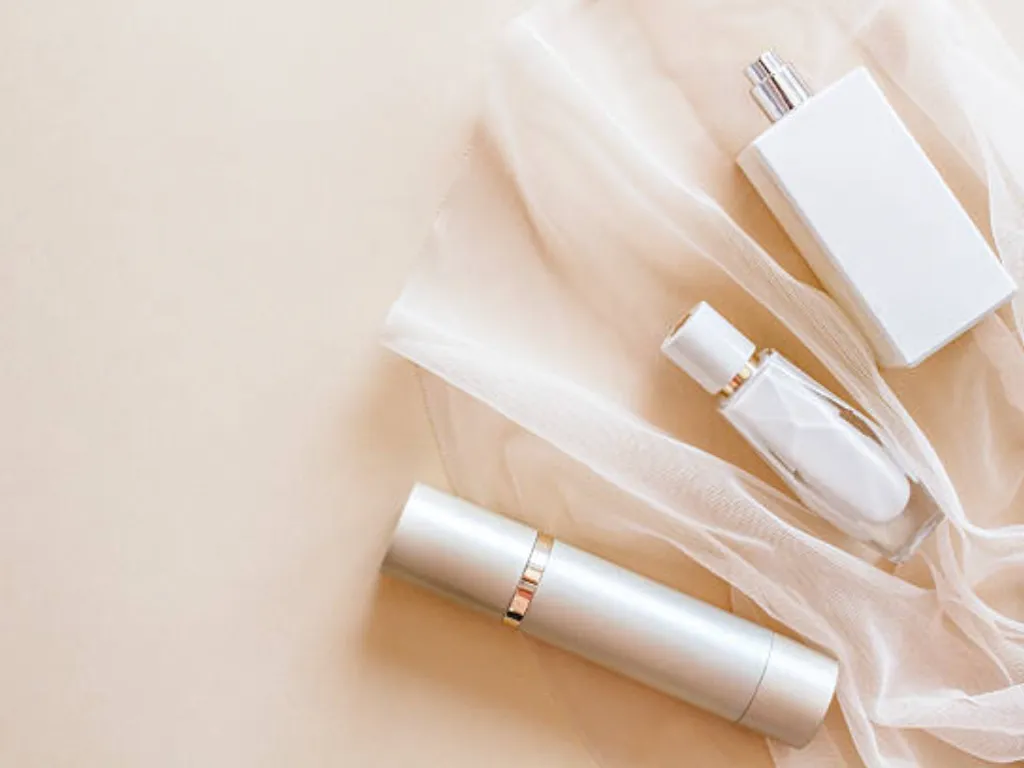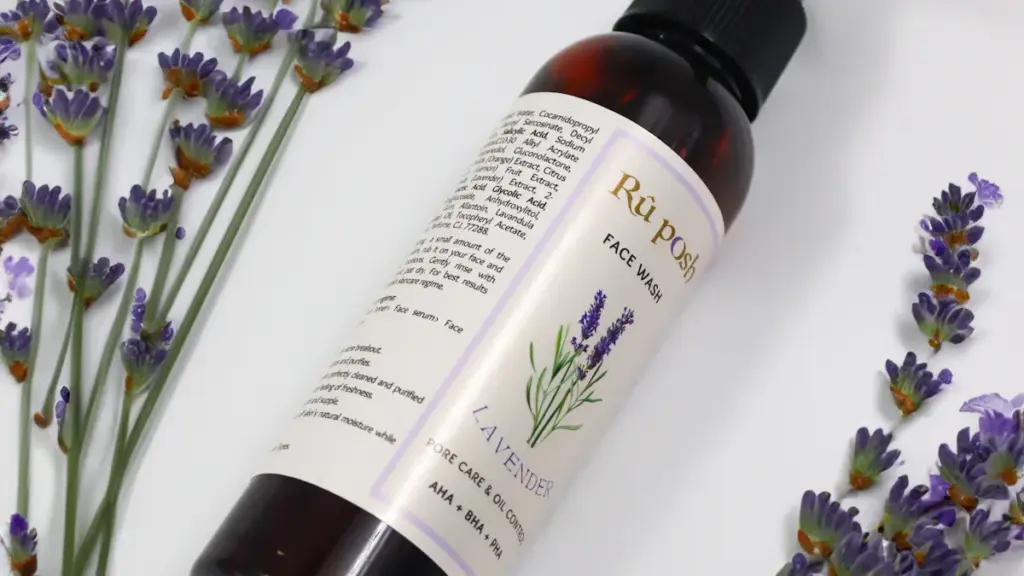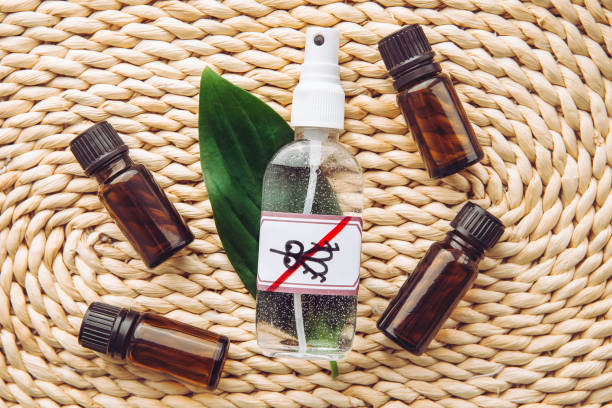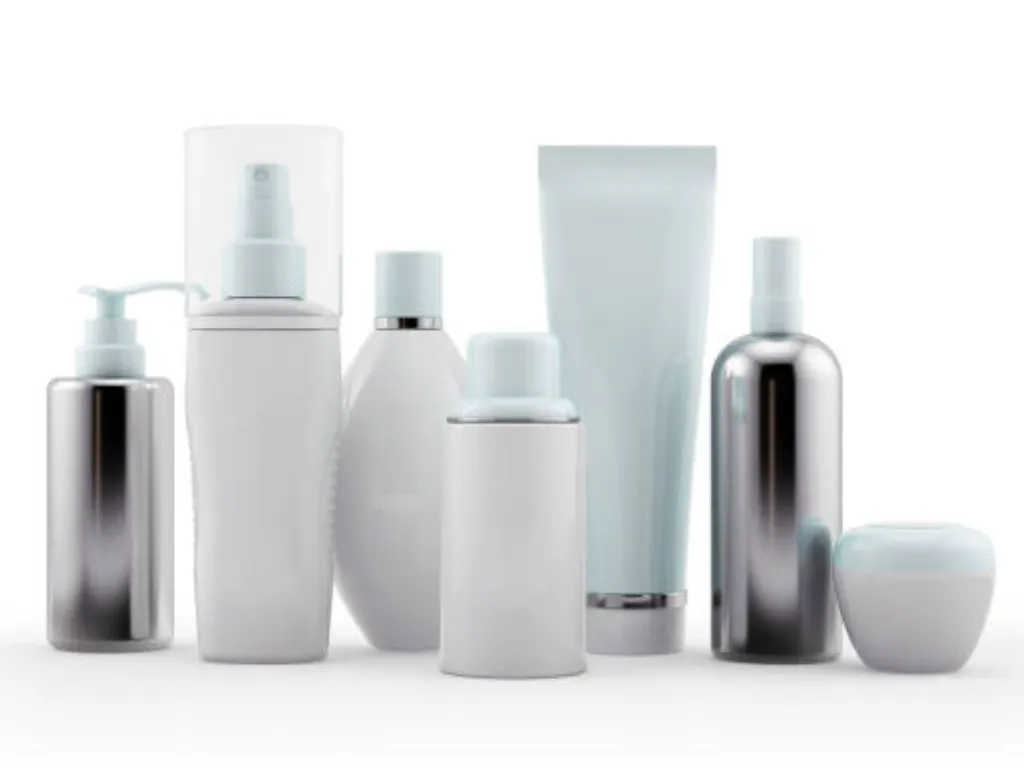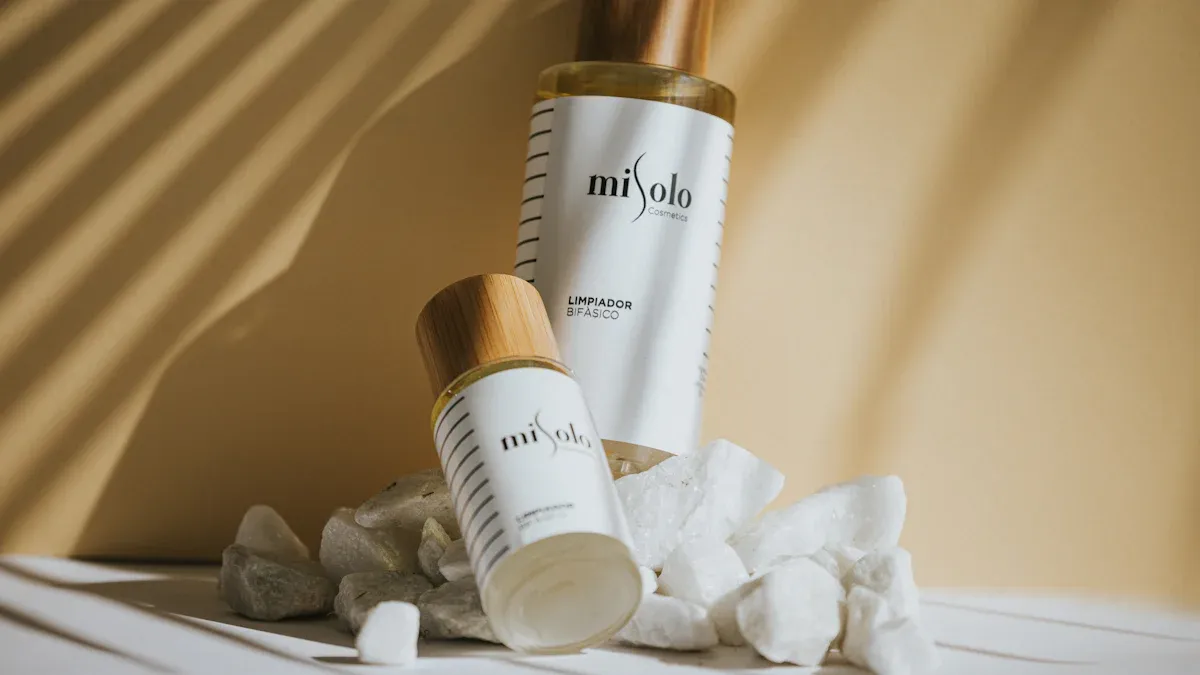
Finding the best manufacturer for your beauty brand plays a critical role in ensuring success. A reliable partner helps maintain quality, comply with regulations, and scale production as your business grows. In 2023, skin care cosmetics dominated the U.S. market with a 42.80% share, reflecting strong consumer demand. Jedoch, choosing a manufacturer without proper research can lead to serious risks. Zum Beispiel, 45% of people express concerns about unregulated cosmetics, and many consumers assume the FDA monitors cosmetic ingredients when it does not.
To maintain control over your brand and meet customer expectations, you need a partner who aligns with your goals. Also, how can you choose the right manufacturer to help you succeed in building a beauty brand?
Define Your Brand’s Needs
Before selecting a cosmetics manufacturer, you need to define your brand’s needs clearly. This step ensures that your production strategy aligns with your goals and resonates with your target audience. Here’s how you can break it down:
Identify Product Categories and Target Audience
Start by identifying the types of beauty products you want to offer. Are you focusing on private label skincare business essentials like cleansers, Feuchtigkeitscremes, or serums? Or are you venturing into cosmetics such as lipsticks, Fundamente, or eye shadows? Narrowing down your product categories helps you find a manufacturer with expertise in those areas.
Understanding your target audience is equally important. Consider their demographics, Vorlieben, and pain points. Zum Beispiel, if your audience values sustainability, you’ll need a private label manufacturer that prioritizes eco-friendly practices. Aligning your products with customer needs fosters loyalty and repeat purchases. Studien zeigen das 95% of new consumer products fail to make an impact because they don’t address customer expectations. By tailoring your offerings to your audience, you can avoid this pitfall and create a competitive edge.
Determine Certifications and Compliance Requirements
Certifications and compliance are non-negotiable in the beauty industry. You must ensure your private label cosmetics meet regulatory standards for safety and quality. Depending on your market, you may need FDA approval, ISO certifications, or adherence to cGMP guidelines. These certifications not only protect your brand but also build trust with your customers.
Transparency in ingredient sourcing is another critical factor. Consumers increasingly demand skincare products with clean, sustainable ingredients. A manufacturer that provides detailed sourcing information can help you meet these expectations. Zum Beispiel, Momentive’s collaboration with Texture Technologies established protocols that improve formulations for shampoos and conditioners, ensuring product performance aligns with consumer needs. Such innovations demonstrate the importance of working with a manufacturer committed to compliance and quality.
Set Budget and Order Volume Expectations
Defining your budget and order volume expectations helps you find a manufacturer that matches your financial and operational needs. Calculate how much you can invest in production without compromising other aspects of your private label skincare business. Consider factors like packaging, Formulierung, and shipping costs.
Order volume plays a significant role in your decision. If you’re starting small, look for a manufacturer offering low minimum order quantities (MOQS). This flexibility allows you to test the market without overcommitting resources. Auf der anderen Seite, if you plan to scale quickly, ensure the manufacturer can handle larger volumes without sacrificing quality. A well-defined budget and volume strategy prevent hidden fees and long-term cost surprises.
Tipp: Partner with a manufacturer that offers scalable solutions and transparent pricing. This ensures you can grow your brand without unexpected financial hurdles.
Research and Shortlist Cosmetics Manufacturers
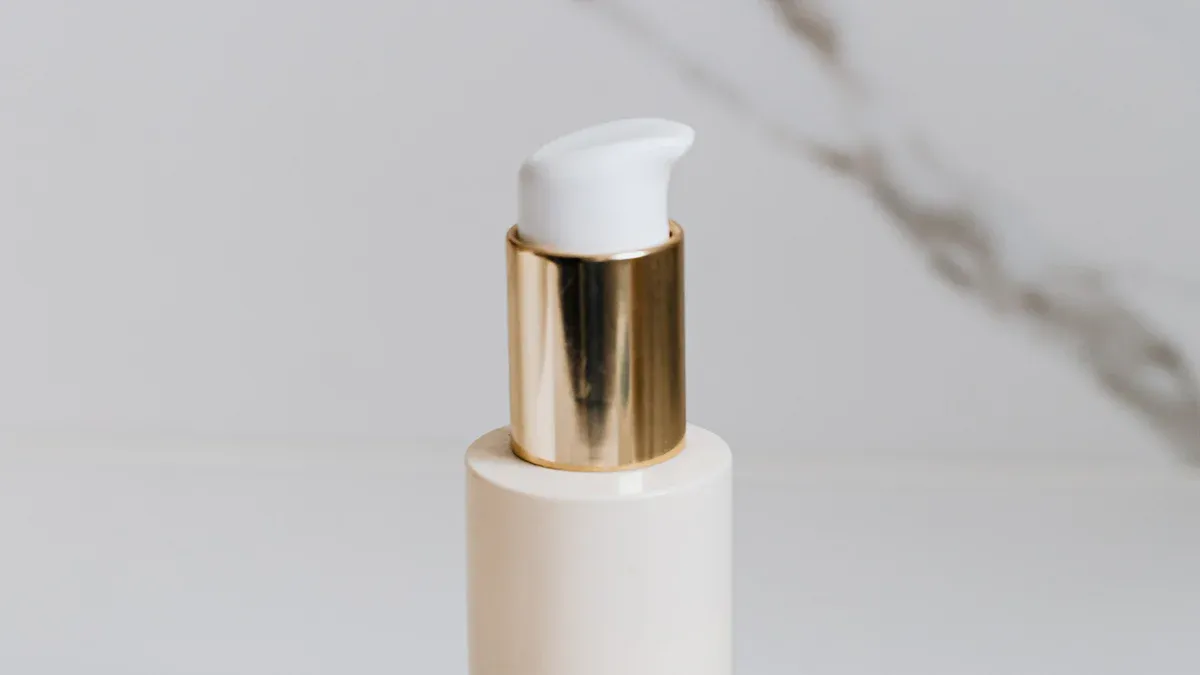
Finding the right cosmetics manufacturer begins with thorough research. This step helps you identify reliable partners who align with your brand’s goals. Here’s how you can effectively shortlist potential manufacturers:
Use Online Reviews and Directories
Online reviews and directories provide valuable insights into a manufacturer’s reliability. Positive reviews and testimonials often indicate high-quality products and dependable service. A strong reputation among clients builds trust and reflects the manufacturer’s commitment to excellence. Look for directories that specialize in beauty products or cosmetics manufacturing. These platforms often highlight manufacturers with proven expertise in the industry. By analyzing reviews, you can gauge the manufacturer’s ability to meet your expectations.
Seek Referrals and Attend Industry Events
Referrals from trusted sources can save you time and effort. Reach out to industry peers or other beauty brands to ask about their experiences with specific manufacturers. Personal recommendations often reveal details that online reviews might miss. Attending trade shows and industry events is another effective way to connect with potential partners. These events allow you to meet manufacturers face-to-face, ask questions, and evaluate their offerings. Networking at such events can also help you discover manufacturers with innovative solutions for your brand.
Evaluate Manufacturer Experience and Reputation
A manufacturer’s experience and reputation play a crucial role in your decision-making process. Look for manufacturers with a long history in the cosmetics industry. Their expertise ensures they understand market trends and regulatory requirements. A solid reputation often indicates consistent quality and reliability. Research their past clients and the types of beauty products they’ve produced. This information helps you determine if the manufacturer aligns with your brand’s vision. Partnering with an experienced manufacturer reduces risks and ensures smoother operations.
Tipp: Choose a manufacturer with a proven track record and strong client relationships. This ensures your brand benefits from their expertise and reliability.
Evaluate Quality and Compliance
Ensuring the quality and compliance of your products is essential when choosing a cosmetics manufacturer. This step protects your brand’s reputation and builds trust with your customers. Here’s how you can evaluate these critical factors.
Assess Quality Control and Certifications
A reliable cosmetics manufacturer should have robust quality control systems in place. These systems ensure that every product meets high standards before reaching your customers. Look for certifications such as FDA compliance, ISO standards, or cGMP (Current Good Manufacturing Practices). These certifications demonstrate the manufacturer’s commitment to maintaining consistent quality.
Ask about their quality control processes. Do they test raw materials and finished products? Do they have procedures to identify and address defects? A manufacturer with a strong focus on quality control reduces the risk of recalls or customer complaints. This attention to detail ensures your products meet regulatory requirements and customer expectations.
Tipp: Partner with a manufacturer that prioritizes certifications and quality control. This guarantees your products align with industry standards and consumer safety.
Verify Ingredient Sourcing and Transparency
Ingredient sourcing plays a vital role in product quality. High-quality ingredients not only improve performance but also enhance customer satisfaction. Bei der Bewertung eines Herstellers, ask about their sourcing practices. Do they work with ethical suppliers? Can they provide documentation for their ingredients?
Transparency in sourcing is becoming increasingly important. Modern consumers expect visibility into the ingredients used in their cosmetics. Some companies now use blockchain-backed documentation to verify ethical and sustainable sourcing. This approach builds trust and reduces pressure on customer service teams.
Some companies are going further by offering blockchain-backed sourcing documentation, particularly for ethical or sustainable ingredients. This enhances consumer trust and reduces pressure on customer service teams.
Regulatory agencies are also enforcing stricter transparency standards. Der Modernization of Cosmetics Regulation Act (MoCRA) requires manufacturers to meet new labeling and safety substantiation rules. By aligning with these regulations, you can ensure compliance and strengthen your brand’s credibility.
Die Modernisierung des Kosmetikregulierungsgesetzes (MoCRA) enforces strict new standards for labeling and safety substantiation to ensure consumer protection. By aligning operations with the requirements of MoCRA, manufacturers can meet regulatory standards and build consumer trust.
Modern consumers expect visibility into product ingredients.
Regulatory agencies are reinforcing transparency expectations with legal mandates.
Companies using digital transparency tools enhance consumer trust and loyalty.
Request Samples to Test Product Quality
Before committing to a manufacturer, request product samples. Testing samples allows you to evaluate the quality firsthand. Pay attention to texture, Duft, und Leistung. Do the products meet your expectations? Are they consistent with your brand’s vision?
Sampling also helps you identify potential issues early. Zum Beispiel, you can test how the product reacts to different skin types or climates. This step ensures the final product aligns with your customers’ needs. A manufacturer willing to provide samples demonstrates confidence in their expertise and production capabilities.
Tipp: Always test multiple samples to ensure consistency. This step helps you avoid surprises during mass production.
Anpassung und Flexibilität

Explore Custom Formulation Options
Custom formulations allow you to create unique cosmetics that align with your brand’s identity. These formulations help differentiate your products in a competitive market. You can tailor ingredients to meet specific consumer needs, such as sensitive skin or eco-friendly preferences. This approach builds trust and loyalty among your customers.
Custom formulations also enable you to adapt quickly to emerging trends. Zum Beispiel, brands that prioritize wellness can incorporate natural or organic ingredients into their products. This flexibility ensures your cosmetics remain relevant as consumer preferences evolve.
Benefits of Custom Formulations:
Create unique products that stand out in the market.
Align ingredients with your brand’s values, such as sustainability.
Address specific demographic needs, enhancing customer satisfaction.
Build loyalty through personalized solutions.
Adapt to trends and innovations with ease.
Assess Packaging Manufacturer Capabilities
Packaging plays a vital role in your product’s appeal and functionality. A reliable packaging manufacturer should offer flexible solutions that match your brand’s vision. Look for expertise in designing packaging that protects your cosmetics while enhancing their aesthetic appeal.
Evaluate the manufacturer’s ability to provide eco-friendly options. Sustainable packaging resonates with modern consumers who value environmental responsibility. Zusätzlich, ensure the packaging manufacturer can handle custom designs and branding elements. This capability allows you to create packaging that reflects your brand’s identity.
Fallstudien:
Marke
Strategiebeschreibung
Outcome
Ulta Beauty
Implemented a Skincare Routine Quiz to provide tailored product recommendations.
Higher customer satisfaction and increased sales due to mobile-friendly engagement.
Function of Beauty
Uses quizzes to collect data on hair type and preferences for personalized haircare.
Enhanced customer retention and satisfaction, especially after launching in physical stores.
Jones Road Beauty
Incorporated quizzes to match customers with products, achieving a 20% conversion rate.
Minimized returns and improved shopping experience through effective product matching.
Ensure Adaptability to Market Trends
The cosmetics industry evolves rapidly, and your brand must stay ahead of these changes. Partnering with a manufacturer that prioritizes adaptability ensures your products remain competitive. Zum Beispiel, manufacturers with expertise in custom formulations can help you incorporate trending ingredients like hyaluronic acid or CBD into your cosmetics.
Packaging trends also shift frequently. A packaging manufacturer that offers flexible solutions can help you update designs to match consumer preferences. Zum Beispiel, minimalist packaging or refillable containers are gaining popularity among eco-conscious shoppers.
Adaptability not only keeps your products relevant but also strengthens your brand’s reputation as an innovator. By staying aligned with market trends, you can attract new customers and retain existing ones.
Production Capacity and Timelines
Confirm Scalability and Volume Capabilities
Your cosmetics manufacturer must have the capacity to scale production as your brand grows. Start by asking about their maximum production volume. This helps you determine if they can handle increased demand during peak seasons or after a successful product launch. Manufacturers with expertise in scaling operations can adjust production without compromising quality.
Consider their ability to accommodate changes in order size. Zum Beispiel, if you plan to introduce new cosmetics or expand into different markets, the manufacturer should adapt quickly. A flexible partner ensures your brand remains competitive and meets customer expectations.
Tipp: Choose a manufacturer with proven scalability to avoid delays or shortages during growth phases.
Evaluate Turnaround Times
Turnaround time directly impacts your ability to meet deadlines and launch products on schedule. Ask the manufacturer about their average production timelines. Reliable manufacturers provide clear estimates and stick to them.
Evaluate how they handle unexpected delays. Do they have contingency plans for supply chain disruptions? A manufacturer with efficient processes ensures your cosmetics reach the market on time. Faster turnaround times also give your brand an edge in responding to trends or seasonal demands.
Notiz: Short production timelines should never compromise product quality.
Ensure Consistency in Quality Over Time
Consistency is key to building trust with your customers. Your cosmetics manufacturer must maintain the same level of quality across all production batches. Ask about their quality assurance processes. Manufacturers with certifications like cGMP or ISO standards often have systems in place to ensure uniformity.
Request documentation of their quality checks. This includes testing raw materials and finished products. Consistent quality protects your brand’s reputation and reduces the risk of customer complaints.
Tipp: Partner with a manufacturer committed to long-term quality assurance. This ensures your cosmetics meet customer expectations every time.
Cost and Value Assessment
Balance Cost with Quality and Value
Balancing cost with quality and value is essential when selecting a cosmetics manufacturer. While lower costs may seem appealing, they often come with compromises in product quality or service reliability. High-quality cosmetics require premium ingredients, advanced production techniques, and rigorous quality control. These factors ensure your brand delivers products that meet customer expectations.
Instead of focusing solely on price, evaluate the overall value a manufacturer provides. Consider their expertise, Zertifizierungen, and ability to meet your specific needs. Zum Beispiel, a manufacturer offering custom formulations and sustainable packaging may justify a higher cost due to the added value they bring to your brand. Prioritizing value over cost helps you build a strong reputation and fosters customer loyalty.
Tipp: Choose a manufacturer that aligns with your brand’s vision and delivers consistent quality at a fair price.
Identify Hidden Fees and Long-Term Costs
Hidden fees and long-term costs can significantly impact your budget. Many manufacturers include additional charges for services like quality control, Lagerung, or logistics. Understanding these costs upfront helps you avoid unpleasant surprises.
Here’s a breakdown of common cost categories and their potential impact:
Cost Category | Percentage/Cost Range | Beschreibung |
|---|---|---|
Qualitätskontrolle & Assurance | Ensuring product integrity and reducing recall risks | |
Supplier Relationship Management | 8-12% | Optimizing manufacturer sourcing costs and maintaining strong partnerships |
Production Technology & Equipment | 15-20% | Driving efficiency and investing in long-term cost savings |
Logistik & Supply Chain Management | $1,000 – $5,000 monthly | 15-25% |
Warehousing & Storage | $5 – $10/sq ft monthly | 10-15% |
Distribution & Shipping | $0.50 – $2.00 per shipment | 20-30% |
Logistics Software Investment | $500 – $2,000 monthly | 5-10% |
Understanding these costs allows you to plan better and negotiate terms with your manufacturer. A transparent partner will provide a detailed breakdown of expenses, ensuring you can make informed decisions.
Compare Pricing Across Private Label Manufacturers
Comparing pricing across multiple private label manufacturers helps you identify the best fit for your brand. Request quotes from several manufacturers and analyze what each includes. Look beyond the base price to evaluate the value-added services they offer, such as custom formulations, Verpackungsdesign, or dropshipping.
Pay attention to minimum order quantities (MOQS) and scalability options. A manufacturer with flexible MOQs may be ideal for startups, while one with high-volume capabilities suits established brands. Comparing pricing also highlights potential red flags, such as unusually low costs that may indicate compromised quality.
Tipp: Focus on manufacturers that provide a balance of competitive pricing, reliable quality, and long-term value.
Communication and Transparency
Assess Responsiveness and Collaboration
Effective communication is the backbone of any successful partnership with a cosmetics manufacturer. You need a partner who responds promptly and connects you with the right personnel at critical moments. This level of responsiveness helps prevent costly errors and ensures smooth operations. Proactive communication also fosters a collaborative environment where challenges are addressed before they escalate.
Transparency throughout the manufacturing process keeps all parties aligned. Zum Beispiel, digital tools can facilitate real-time updates, ensuring you stay informed about production progress. This approach not only builds trust but also allows you to make timely decisions that benefit your brand.
Timely communication avoids production delays and errors.
Transparency ensures alignment between your goals and the manufacturer’s processes.
Real-time collaboration tools enhance efficiency and keep you informed.
By prioritizing responsiveness and collaboration, you create a foundation for a strong and productive relationship with your manufacturer.
Ensure Transparency in Pricing and Processes
Transparency in pricing and processes is essential for building trust with your cosmetics manufacturer. When a manufacturer provides clear details about costs, you can better understand how your investment translates into product quality. Zum Beispiel, explaining ingredient sourcing and production costs helps justify price points, making it easier for you to communicate value to your customers.
Studies show that consumers are more willing to pay for high-quality cosmetics when they understand the costs behind them. Transparent pricing also reduces skepticism, improving your confidence in the partnership. Brands like Beautycounter have successfully gained consumer trust by revealing their ingredients and advocating for safer standards.
Clear pricing explanations enhance trust and reduce doubts.
Transparency about ingredient sourcing resonates with consumers who value sustainability.
Educating customers about production processes leads to more confident purchasing decisions.
A manufacturer committed to transparency ensures you can make informed decisions while maintaining your brand’s integrity.
Look for a Manufacturer Committed to Partnership
A strong partnership with your cosmetics manufacturer goes beyond transactions. Look for a partner who shares your vision and invests in your brand’s success. Manufacturers who prioritize long-term collaboration often provide valuable insights into market trends and innovations. This commitment helps you stay competitive and adapt to changing consumer preferences.
Authenticity in communication strengthens the partnership. Zum Beispiel, a manufacturer who aligns with your storytelling and values enhances your brand’s authenticity. This alignment builds trust and ensures consistency across all aspects of your cosmetics.
A committed partner offers insights that help your brand grow.
Authentic communication aligns with your brand’s values and storytelling.
Long-term collaboration fosters innovation and adaptability.
Choosing a manufacturer who values partnership ensures your brand thrives in a competitive market.
Building a Long-Term Partnership
Focus on Scalability and Innovation
Scalability and innovation are essential for building a partnership that lasts. A cosmetics manufacturer with the ability to scale ensures your brand can grow without interruptions. Ask about their capacity to handle increased production volumes during peak seasons or after a successful product launch. This flexibility allows you to meet customer demand without compromising quality.
Innovation also plays a critical role in staying competitive. Manufacturers that offer custom formulations or sustainable packaging help your cosmetics stand out. Zum Beispiel:
Brands like Curology and Proven Skincare use advanced algorithms to create personalized products, boosting customer satisfaction.
Manufacturers that prioritize eco-friendly packaging or sustainable ingredients align with consumer values, fostering loyalty.
Strategic collaborations with manufacturers can open doors to new markets and distribution channels, increasing visibility.
By focusing on scalability and innovation, you ensure your brand remains adaptable and relevant in a fast-changing market.
Maintain Open Communication and Feedback
Open communication is the foundation of successful relationships with your cosmetics manufacturer. Regular updates on production timelines, ingredient sourcing, and quality control keep both parties aligned. This transparency minimizes misunderstandings and ensures your brand’s goals are met.
Feedback is equally important. Share your insights on product performance and customer preferences. A manufacturer that values your input can adjust processes to better suit your needs. Zum Beispiel, if customers request more sustainable options, your manufacturer can explore eco-friendly alternatives. This collaborative approach strengthens the partnership and ensures your cosmetics meet evolving consumer expectations.
Proactive communication also helps address challenges early. Whether it’s a supply chain delay or a formulation issue, discussing problems openly leads to faster solutions. This level of collaboration builds trust and ensures smoother operations.
Foster a Trust-Based Relationship
Trust is the cornerstone of any long-term partnership. Sharing data with your manufacturer enhances decision-making and improves visibility across the supply chain. This transparency allows both parties to make informed choices that benefit your brand.
Trust-based relationships also lead to higher customer satisfaction. When your manufacturer consistently delivers high-quality cosmetics, your customers notice. This reliability strengthens your reputation and fosters loyalty.
To build trust, choose a manufacturer that prioritizes ethical practices and sustainability. Transparency in ingredient sourcing and production processes reassures you and your customers. Im Laufe der Zeit, this trust creates a strong foundation for a lasting partnership.
Tipp: Regularly review your partnership to ensure both parties remain aligned. This practice helps maintain trust and supports mutual growth.
Choosing the right cosmetics manufacturer is a critical step in building a successful brand. Start by defining your needs, researching potential partners, and evaluating their quality, compliance, and scalability. Aligning with a manufacturer that shares your values ensures your cosmetics resonate with your audience and maintain high standards. Zum Beispiel, Marken mögen Shiseido have achieved long-term success by collaborating with partners who enhance customer relationships and drive innovation.
Taking a strategic approach minimizes risks and maximizes growth opportunities. Verify the credibility of manufacturers, build strong partnerships, and consider backup suppliers to avoid disruptions. The benefits of this approach are clear, as shown below:
Durch die Ausführung dieser Schritte, you can position your brand for sustained success in the competitive cosmetics industry.
FAQ
What is the difference between private label and contract manufacturing?
Private label manufacturing offers pre-formulated products that you can brand as your own. Contract manufacturing creates custom formulations tailored to your specifications. Both options depend on your brand’s needs, Budget, and timeline.
How do I verify a cosmetics manufacturer’s certifications?
Request documentation for certifications like FDA compliance, ISO standards, or cGMP. You can also check their website or ask for references from other brands they’ve worked with.
Can I start with a small order volume?
Ja, many manufacturers offer low minimum order quantities (MOQS). This flexibility allows you to test your products in the market before committing to larger production runs.
How long does it take to produce cosmetics?
Production timelines vary by manufacturer. Durchschnittlich, es dauert 4-8 Wochen, depending on factors like formulation complexity, Verpackungsdesign, and order volume. Always confirm timelines before signing a contract.
What should I look for in a cosmetics manufacturer?
Focus on quality control, Zertifizierungen, Skalierbarkeit, and transparency. A reliable manufacturer aligns with your brand’s vision and ensures consistent product quality. Research their reputation and request samples to evaluate their capabilities.

